|
April began with spring cleaning and is going out with spring cleaning! Maybe it's the uptick in allergies or the constant kid's messes, but the vacuum is our house's unending melody. It's had me thinking about Frances and the spring cleaning at Springwood. When included that in A Roosevelt Smile, it was based on information from Sara Delano Roosevelt's household book. Spring cleaning in a house like Springwood was a huge undertaking- the largest part being the care of the enormous Persian rugs! If you recall, Mrs. James tasked Frances with polishing mahogany furniture, of which there was no shortage. The smell of the polish aggravated her early pregnancy symptoms for a clue to what was coming! This month, I'm thrilled to share Mrs. James's original furniture polish recipe with you so you can try it out in your own spring cleaning! The best part is that you likely have the ingredients hiding in your pantry: all you'll need is oil, vinegar, and alcohol. Now, in Frances's version, she used an orange-infused vinegar to give this recipe some extra fragrance. To accomplish this, simply save some orange peels. Place them in a clean jar and cover them with vinegar. Allow the jar to sit for 2-3 weeks away from direct sunlight (pantries work great!) Happy Spring Cleaning!
0 Comments
I made and unmade a children's book this month. I've long enjoyed crafting short children's stories that combine history and values. Illustrations have been a limitation, though. The cost of high-quality images is difficult to recoup, especially with authors' ever-shrinking royalty margins. AI has changed that- to a degree. I subscribe to Canva, which includes some fun AI tech I experimented with. Some illustrations were absolutely perfect, making my heart soar. Check out this cover: Precisely what I wanted! Something that reminds me of Renoir and the beautiful children's books I enjoyed as a child. But every rose has its thorn! While some images were stunning, capturing what I envisioned in seconds. Others took endless prompts and tokens and continued to be lacking. I decided to publish Eloise and the Royal Stitch, delighting in the fact that I tackled an entire book in a week. But, as soon as I held that proof copy in my hands and saw some images up close, I decided I couldn't put my name on this and sell it. Here's a glimpse of some reasons I pulled it immediately after: It's clear AI has some limitations, especially with multiple faces in an image!
I hope the story will live again! I'll look at hiring a designer who might help. But priority one is finishing up my beta draft of A Frozen Hope, the sequel to A Roosevelt Smile. What do you think about AI these days? I'd love to hear your thoughts in the comments! We just got home from a fun week visiting my parents in southern Florida! It might sound dreamy, but I promise that eleven hours in a car with five kids equals something like fifty-five new gray hairs if my math prevails!
Of course, I couldn’t help but think of Franklin Roosevelt and his visits to those warm ocean waters after he contracted polio. When Franklin was a child, he spent time in Germany with his parents as his father sought healing springs for his heart ailments. Naturally, Franklin followed a similar path. First, he found some friends to invest in a small ship. They named it the Larooco for Laurence, Roosevelt & Company. Franklin spent many days fishing, developing his arm strength, and enjoying the warm salt waters. A few things stick out to me about this time: 1) Franklin's sense of humor returned. Just look at the rules he devised in his ship's Log Book: Rules For Log Book Scribes I. This Log Book must be entirely accurate and truthful. In putting down weights and numbers of fish, however, the following tables may be used. Weights. 2 oz. make—1 log book pound 5 log book pounds make —“a large fish” 2 “large fish” make —“A record day’s catch” Measures. 2 inches make —1 log book foot 2 log book feet make—“Big as a whale” Anything above “whale” size may be described as an “Icthyosaurus” (Note — In describing fish that got away, all these measures may be doubled — it is also permitted, when over 30 seconds are required to pull in a fish to say “After half an hour’s hard fighting—.” II. The poetically inclined are warned that LAROOCO does not rhyme with Morocco. Also the combinations “knows I felt” to rhyme with Roosevelt and “Saw hence” to rhyme with Lawrence are not permitted. III. Verbatim reports of the private conversations of the chief engineer with his carburetor must be represented only thus – “x ! ! x ! — ? ? X ! —.” IV. All references to “community life” must be written in code. V. The leaves of this Log are made to be easily removed. All frank opinions as to the character, habits and general personality of one’s shipmates written after a 3 days’ nor’wester and no fish will be so removed. (see more from his log in this article) 2) This was part of his life where he stopped hiding his affair. Franklin's son, Elliott, shared much of his shock and pain at seeing Missy LeHand sitting on his father's lap with no effort to conceal their relationship. Eleanor stayed on the ship for a few days and left. She didn't enjoy fishing or the bohemian lifestyle and recounted the nights as eerie. I'd imagine there was a lot behind that statement as she was a perceptive woman. Still, the Florida Keys remember Franklin for his prouder moments when he provided needed aid during the depression and named one of the main roads for him. We always stop by the Navy Exchange and snap a picture in front of the large mural they have of Franklin. Hopefully, on our next visit, we'll stop by FDR's predecessor, Harry Truman's Little White House that is also on the island! Growing up, Christmas time brought much joy and more family than I often realized I had. Every year, I'd drive with my parents to one of my aunt's or uncle's houses for a special Christmas meal. My grandfather was always there, his voice echoing through every room, easily elevating above any other whenever a point needed to be made. After we'd exchanged gifts, ran around outside, and filled our stomachs to the brim, my mom would start talking about the traffic and the need to head home. Just those words signaled the forthcoming forty-five minutes of goodbye hugs. As we were getting ready to leave one year, my grandfather stopped us. He'd forgotten the gifts! The gifts? I thought with delight. Why I'd almost left without one of my favorite parts! My grandfather emerged from his bedroom, his arms overflowing with small white boxes. All the grandchildren hurried over with delight at the trinkets he handed out- a years worth of credit card rewards! Mikey got a flashlight, and Lauren got a mini radio. I got a small clock. The best part was that it came with batteries! Now, he wasn't a stingy man. He generously bestowed Christmas, Easter and birthday gifts that helped all of us cousins line our piggy banks. But sometimes, the best things really are free! As I hugged him goodbye, feeling the scruffiness of the whiskers on his cheeks, my glee over my new clock faded away when I thought about what had happened to him this very day seventy something years before. His strong hug reminded me of just how tough he was inside. His mother, Frances, was very ill, he'd said. She couldn't care for him any longer, he recalled from the depths of his memory with no more words. On Christmas Eve, 1923, Frances brought him to a police station and never returned. He sat on the second-floor balcony, swinging his feet between the balusters, waiting. Waiting for the door to open, waiting for her to reappear. But she didn't come. At shift's end, a police officer brought Walter to Saint Joseph's Orphan Asylum. He handed him a small peppermint candy as a parting gift. For as long as my grandfather lived, he couldn't enjoy the taste of peppermint again. As many times as we asked about the orphanage, my grandfather's words were few. He shared he played the piccolo in the band, but the nuns thought he looked silly, being so tall and holding such a small instrument, so they switched him to a flute. He shared about the day he was in so much pain that he went to the nurse. Everyone thought he was faking, as he crawled to her office, unable to stand. Fortunately, he made it to surgery before his appendix burst. He also spoke of the gifts he received on his birthday- though the nuns claimed his birthday was October 16th, but he was vehement it was the 9th. On Christmas, he unwrap an orange, while other kids fought over the peels. The nuns would tell him how he looked just like Franklin Roosevelt. I can't imagine what that meant to him? Did it feel like a coincidence, like when someone remarks that you look like a celebrity? Or did it feel more intimate? Did he know Franklin? Hear stories from his mother about working for him? Or was he just a foreign name associated with a newspaper? After ten years, the nuns arranged an internship for Walter, first in a patent office and then working in sales. He started off selling granular soap to businesses; the orphanage being one of his first customers, and through the decades advanced high into the company. When he left the orphanage, the nuns handed him a huge sum of money that was leftover, after they'd taken out of it for his gifts and ten years monthly room and board. Thinking back on it now, I'm impressed he had the wisdom to use his money wisely and not blow through it. An orphan spoiling an inheritance sounds like the plot of many nineteenth-century novels. But, an orphan given a large inheritance- allegedly from the Roosevelts, that's the starting place for much of my writing. Hug your loved ones close this year! You may also enjoy:Postcard:BookmarksTo print these, be sure you select "print double sided" [or print page 2 alone] and "scale to fit page" Happy Giving!
It's soup season in my house. I wish you could hear the complaints from all my kids. One doesn't like beans, one doesn't like onions, one doesn't like anything other than yogurt. Still, I will persevere and cycle through all my favorite fall soups! Nothing accompanies a warm bowl of soup like a good book! This week, I'm delighted to share my five favorite pieces of historical fiction on the Roosevelts and their perfect soup pairing! 1. American Princess by Stephanie Marie Thornton
2. The Old Lion by Jeff Shaara
3. The Hyde Park Murder by Elliott Roosevelt
4. Lucy by Ellen Feldman
5. A Roosevelt Smile by Alexandra Kulick
So, what's for dinner in your house this week? Is any book and soup pairing calling to you?
Happy Reading and Eating! Alexandra As an adult, I still remember my displeasure at seeing the character sketches in the American Girl books. That wasn't how I pictured them! Even now, when books are transformed into movies and characters are cast with actors, the right image can make or break a film! Still, there's a draw to put a face to a name. Maybe this is best done before reading when we haven't formed an image in our mind that's impossible to replicate! Yet, for a little launch-week fun, I fed the character descriptions from A Roosevelt Smile to Fotor's AI image generator and was thoroughly amused with the results! AI Character ImagesThe results were pretty solid! In case the captions aren't working, we have Benjamin, Millie, Lyda, and Charles! You'll have to jump to the bottom to see out AI Frances! Historic PHotographsPhotographs certainly take us to a place where AI cannot! So while we're talking characters, I wanted to bring some historic visuals. Below, we have Mademoiselle Thiele, one of the Roosevelt's nannies and a bit of the inspiration behind Millie (though Millie was also one of their servants), Springwood, Mrs. James, and of course, Franklin! AI Generated FrancesHaving AI generate an image of your main character, who is also your great-grandmother that you've never seen, was a daunting task. I can't tell you how many images I rejected in my quest (which is also why there's only an image of her backside on the cover). But while working on some images for the sequel, I came across one that resonated with me ever so slightly!
What do you think? Does this image look the way you pictured Frances? Let me know in the comments! As a final piece in celebrating A Roosevelt Smile, I was so excited to try out Mrs. Roosevelt's Cup Cake" Recipe! There's no "s" in this cup cake recipe, which makes it so much more endearing. I can't help but wonder if they really referred to cupcakes in a singular fashion or if it was a simple missing letter when Mrs. Roosevelt's cousin jotted down this recipe for her! As I looked over the recipe, it seemed very similar to cake recipes we use frequently in terms of ingredients and proportions. What was completely foreign to me was the order in which these ingredients were mixed!
The results were surprisingly thick! I thought all my separation and beating would make a light and airy batter, but this was the opposite! I used a 1/3c scoop to fill up a muffin pan and baked it at 350 for 20 minutes. (The recipe says to bake quickly in a very hot oven). The results!Well, I have to say it's perfect- especially with that Page Turner Award Finalist logo at the top ;) But the cake is actually delicious! It is much more of a dense shortcake than our typical fluffy cupcakes. After I saw how thick the batter was, I decided to scratch the idea of adding buttercream icing, whipped up some homemade whip cream, and topped it off with strawberries! Simply delectable! I've had so much fun celebrating with you all- and hope you enjoy reading A Roosevelt Smile! Let me know if you end up making the recipe, and I'd love for you to tag me in the post!
No meal is complete without a special drink to accompany it! Sara Delano Roosevelt and Eleanor Roosevelt took a strong stance against alcohol. Considering Eleanor's tragic childhood, one can easily understand why. Sara Roosevelt (or Mrs. James to her staff) did not permit drinking in her house- except for Franklin and his company within his office. Though joked about as "a coat closet," Franklin's office was right behind the stairs of Springwood in a room that had previously been the servant's hall (mentioned in chapter 19 of A Roosevelt Smile ). There, and only there, alcohol could be enjoyed. (You can see more on his office in this article by NPS) For today's celebration- we're sticking to drinks likely served in their dining room. This punch recipe comes from a Delano cousin named Una! It was recorded in Sara Roosevelt's household book, which was lovingly put into print by Clara & Hardy Steeholm. To make their punch, you'll start with a hunk of ice. Before refrigeration, ice was carved out of the Hudson River and stored in the ice house for easy access throughout the year. Many kitchens [I presume Springwood] had small insulated compartments built in the kitchen walls to keep ice.
I thought this would be an easy recipe to replicate... until I came across "white rock." My initial thought was that meant sugar. Google tells me it actually means an illicit drug, but I think we can rule that out as an ingredient in the Roosevelt's recipe ! After checking some other historic recipes, I was able to confirm that this refers to 2 cups of granulated sugar! Keep the modern "white rocks" out of the punch, kids! To dive into the history of punch, click the image above! Or, for some more historic punch recipes, check out this wonderful round up of punches prior to 1969!
Do you serve punch at parties? Or has that gone out of fashion? Tell me your thoughts in the comments! |
Alexandrais a writer & tired homeschooling mom of five. Categories
All
Archives
November 2022
|
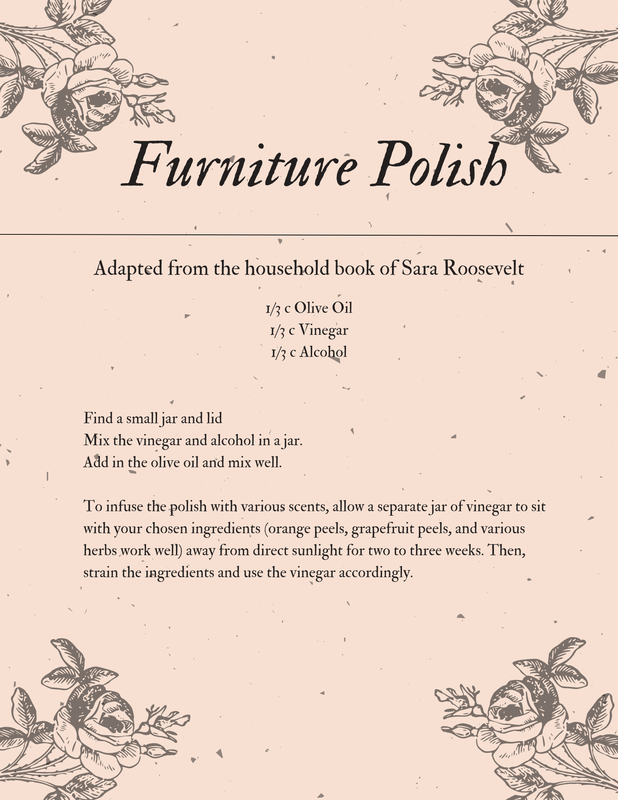
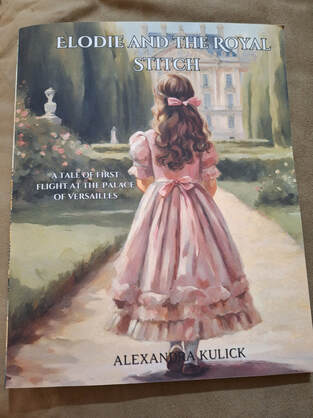
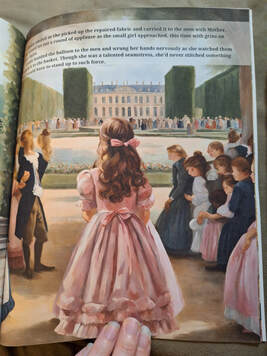
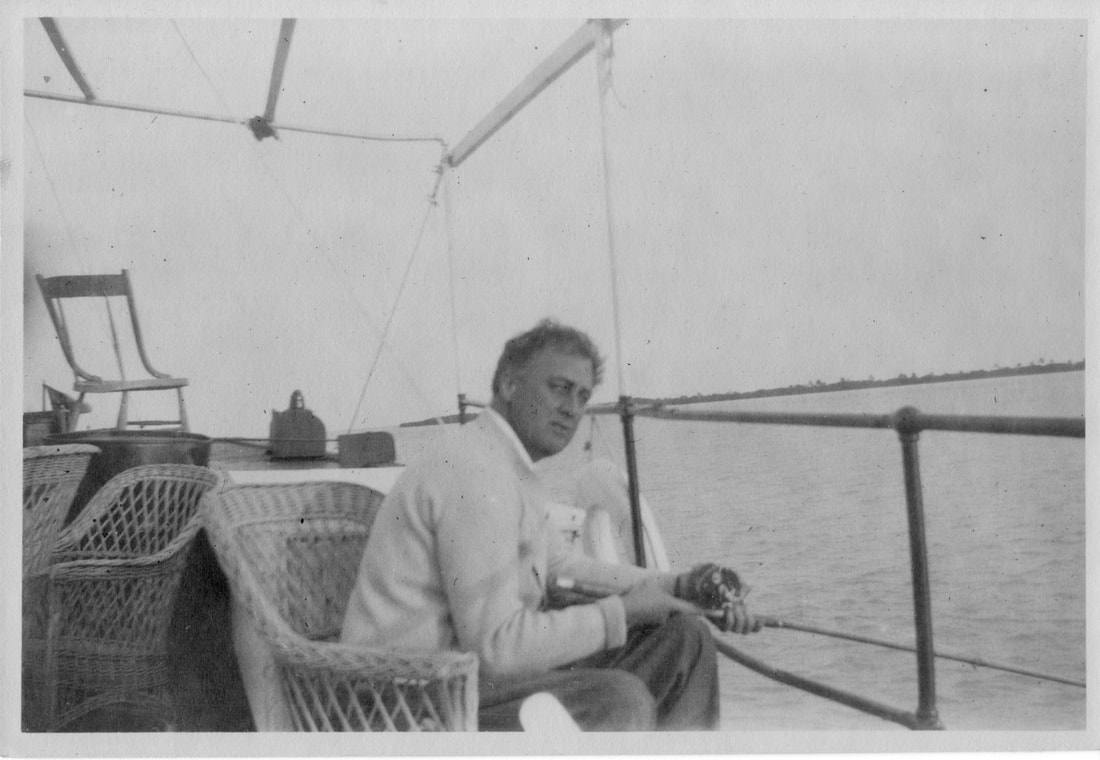
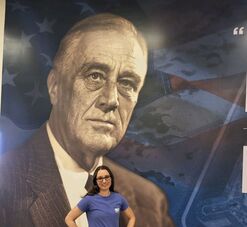


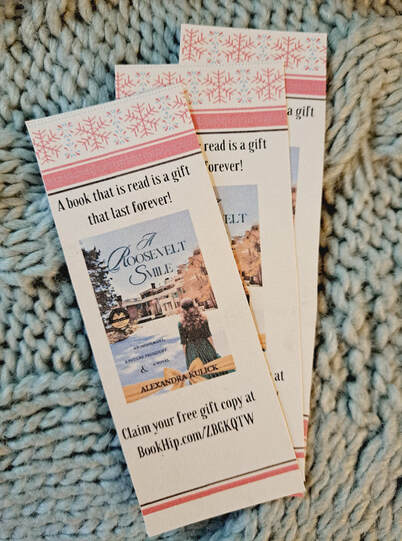
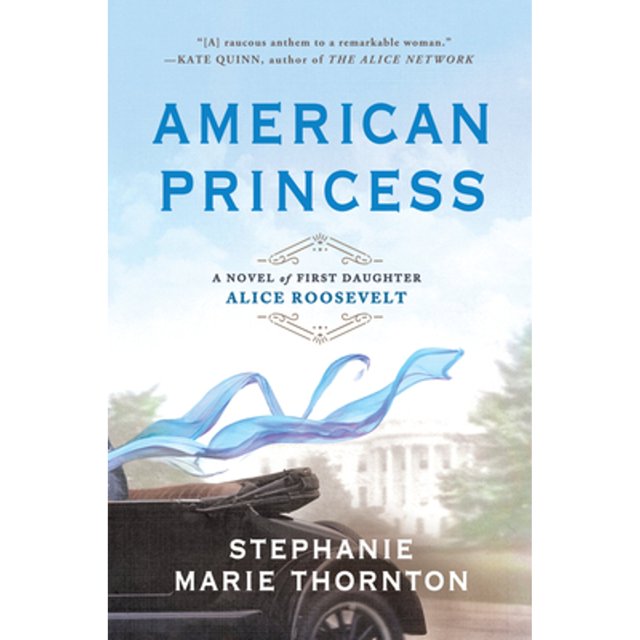

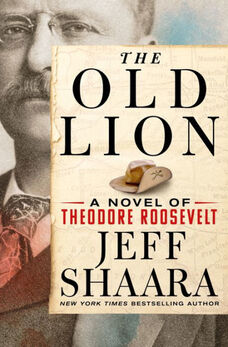



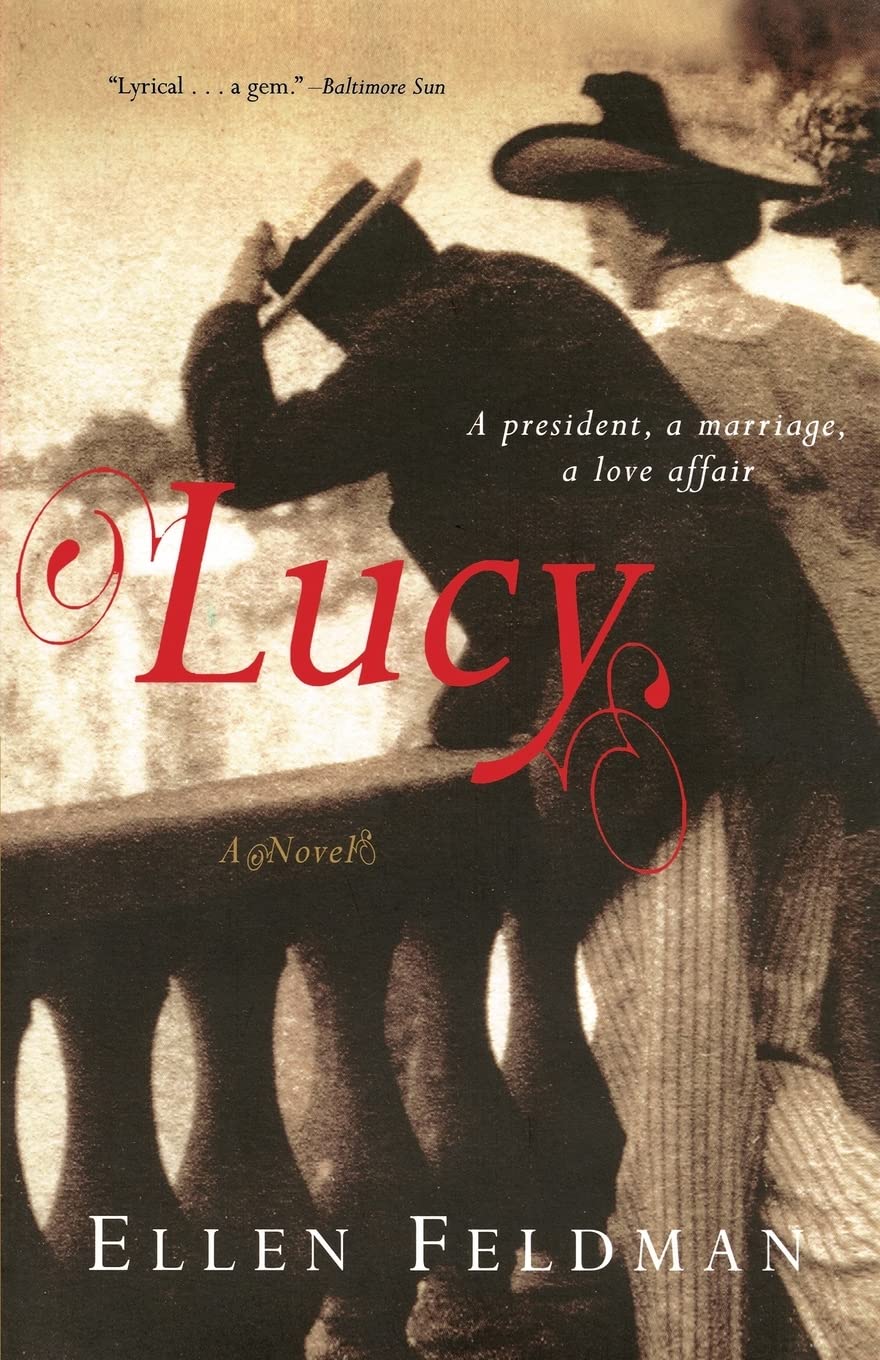

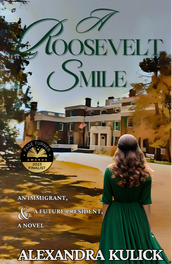


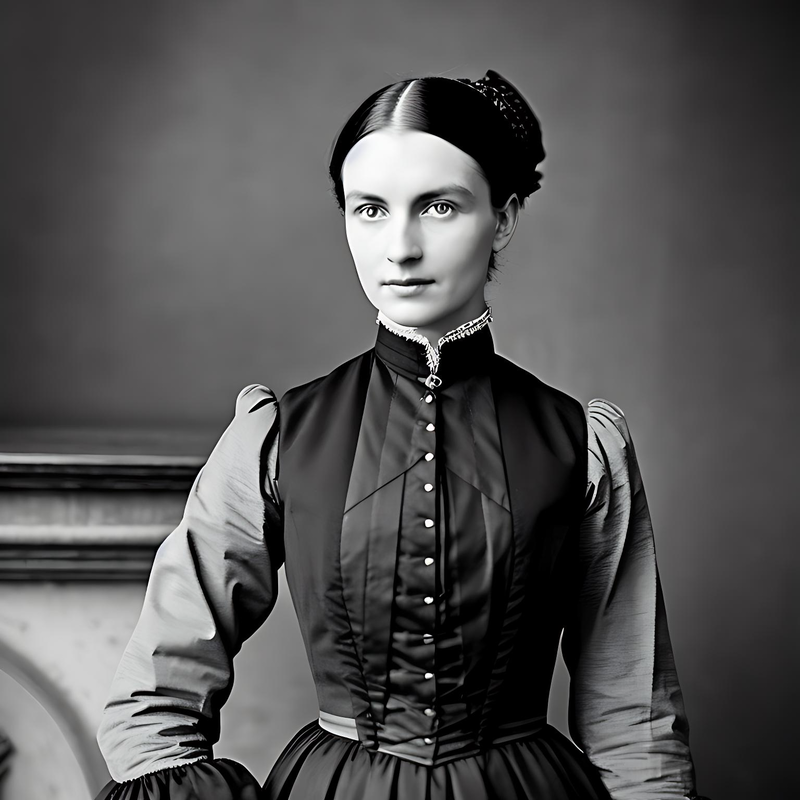
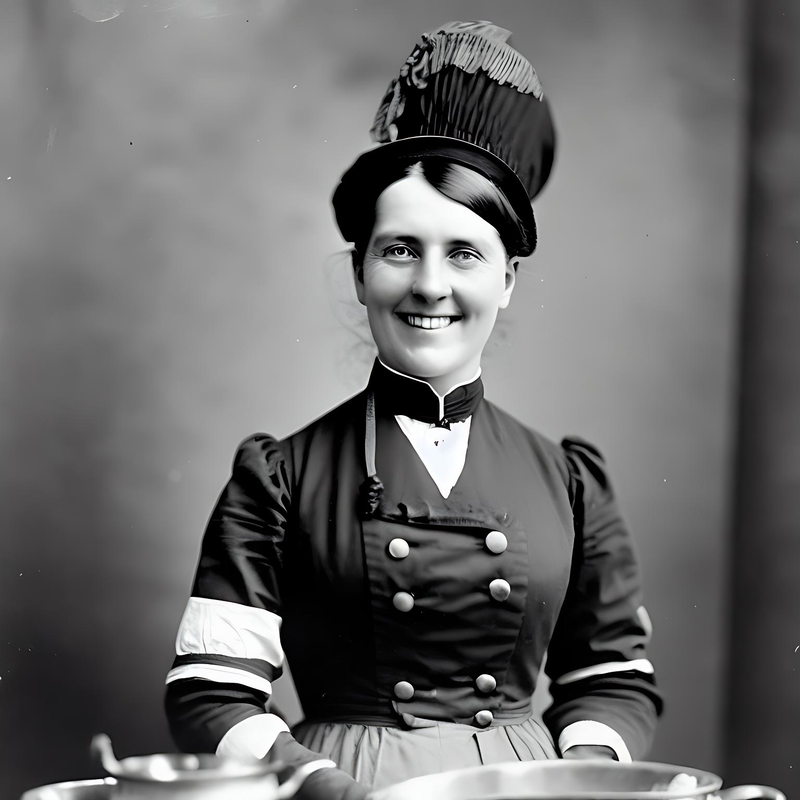

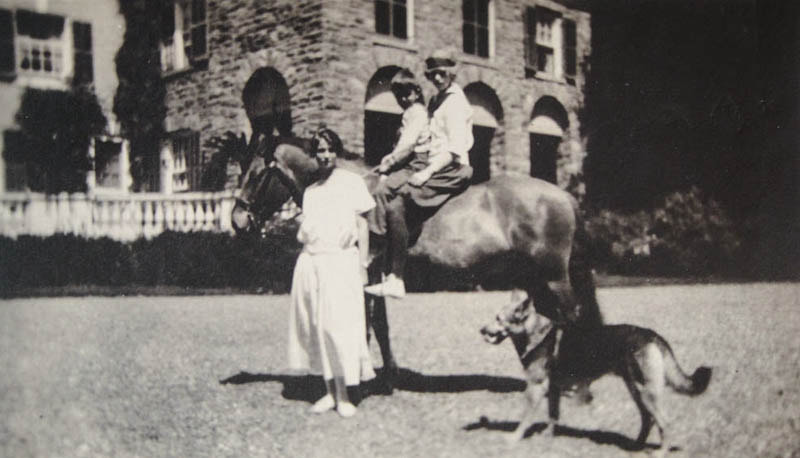
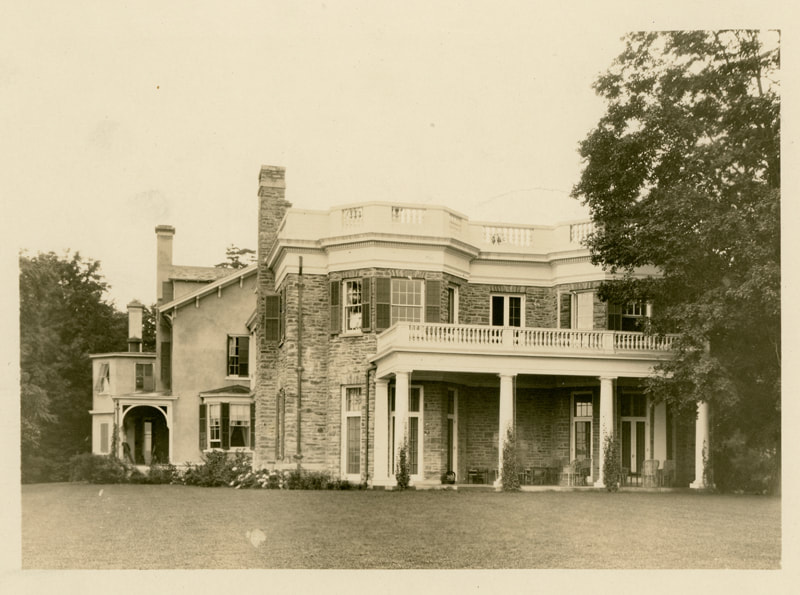
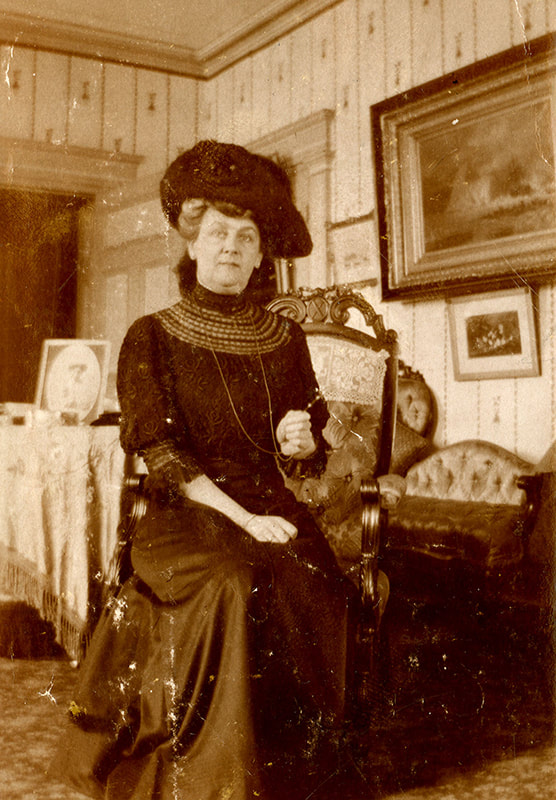
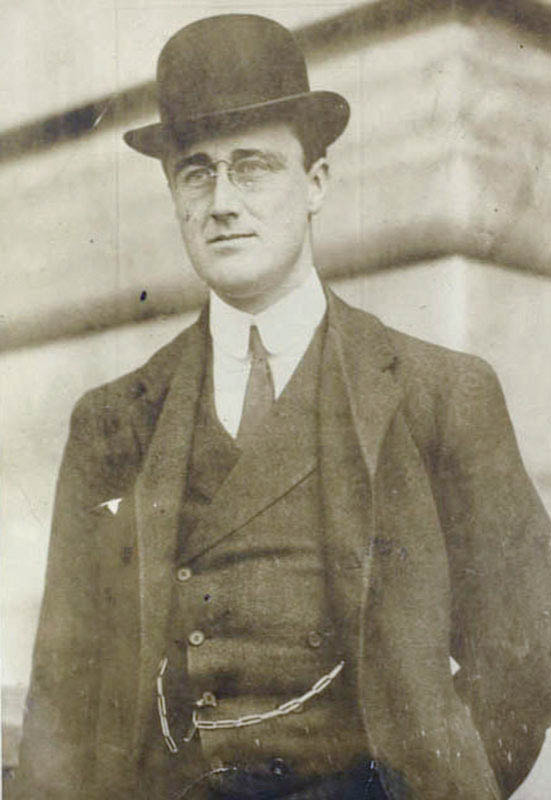
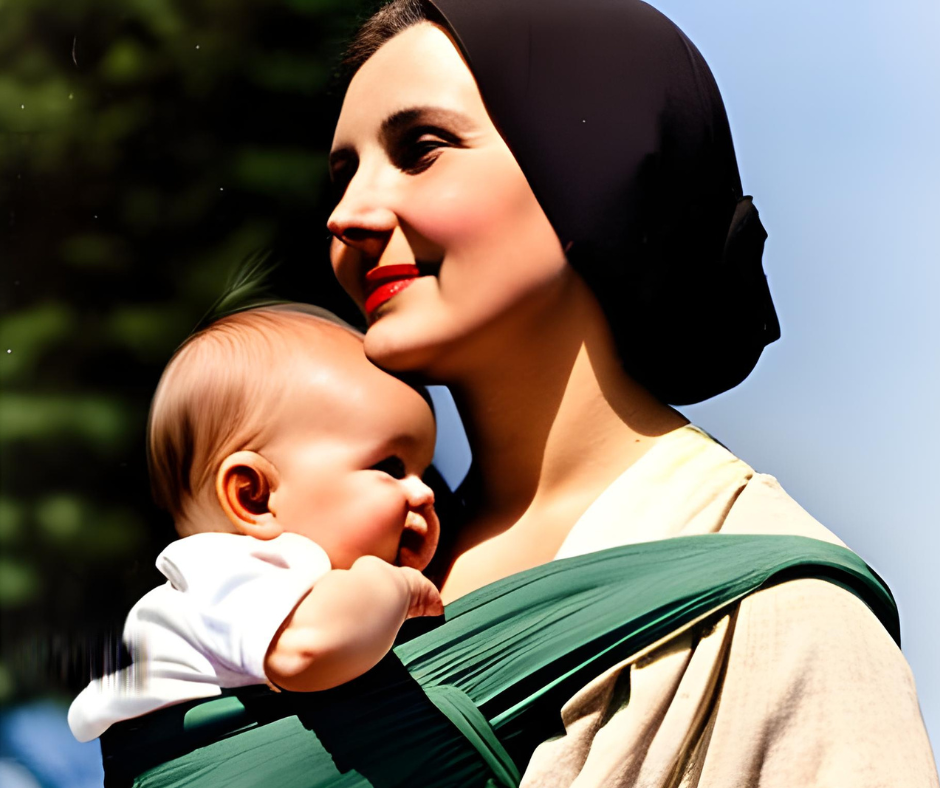
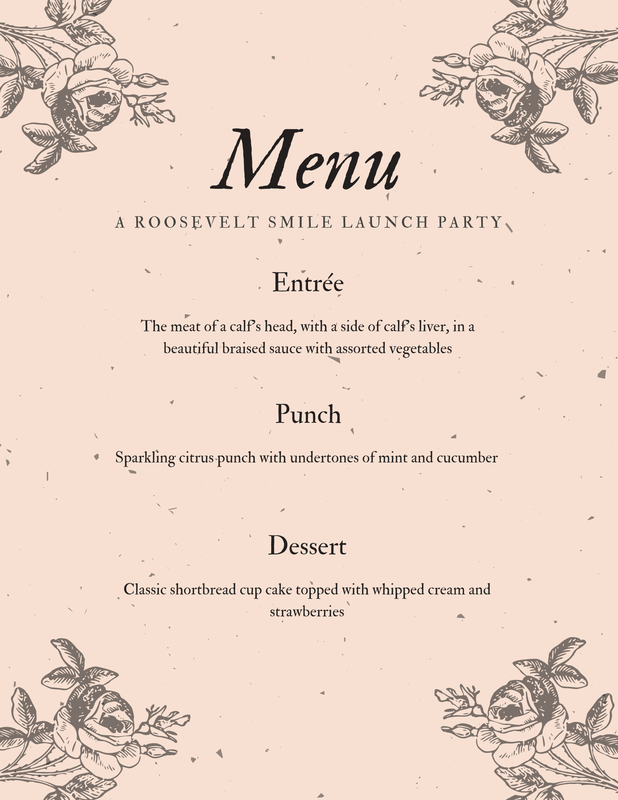


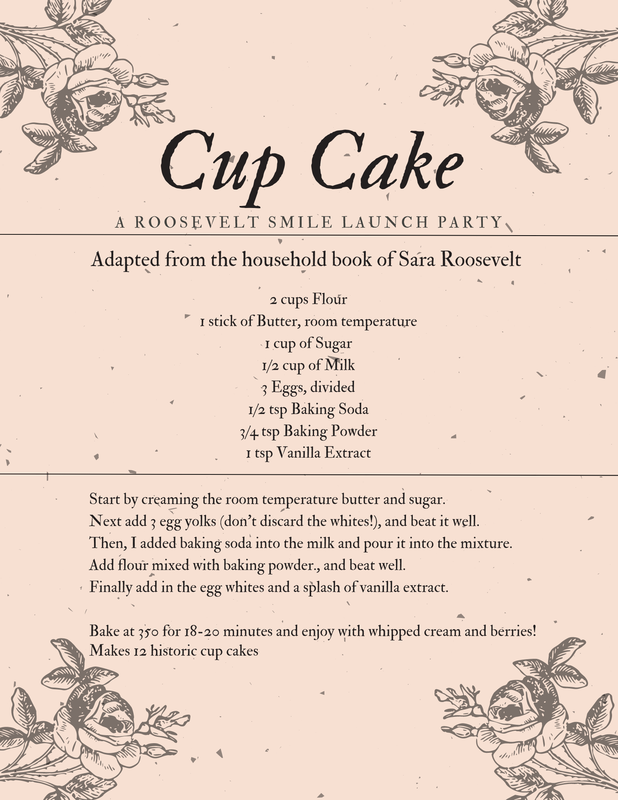
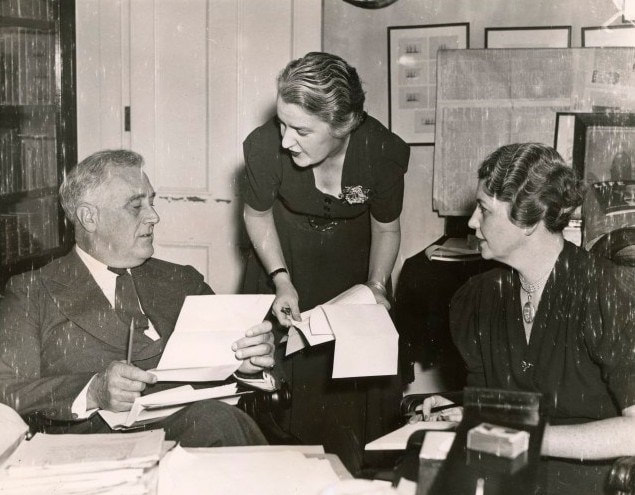



 RSS Feed
RSS Feed
